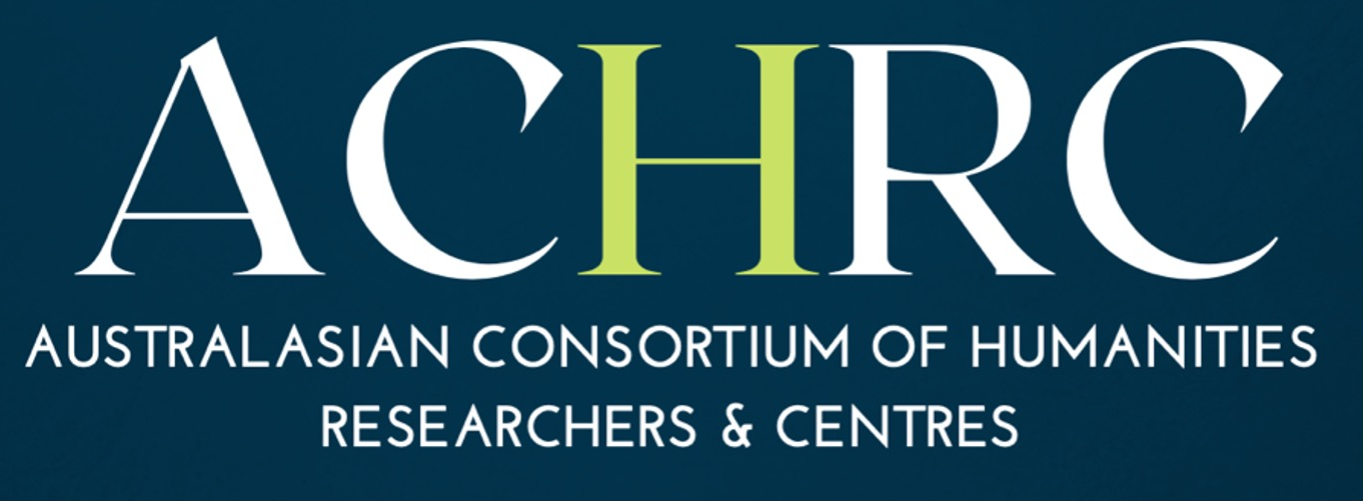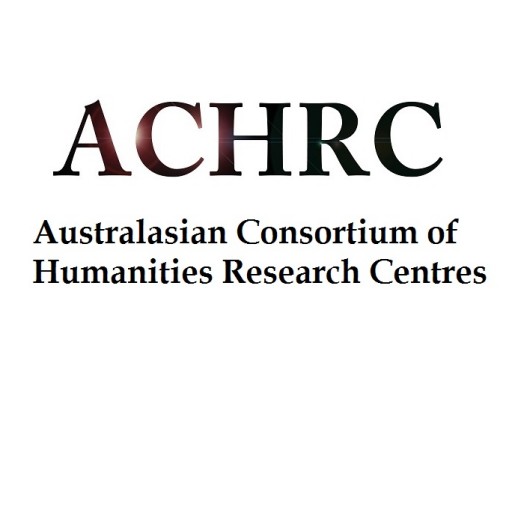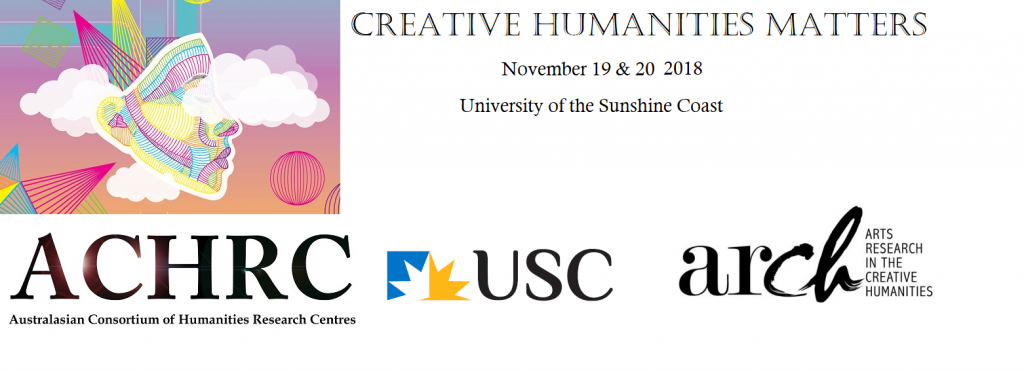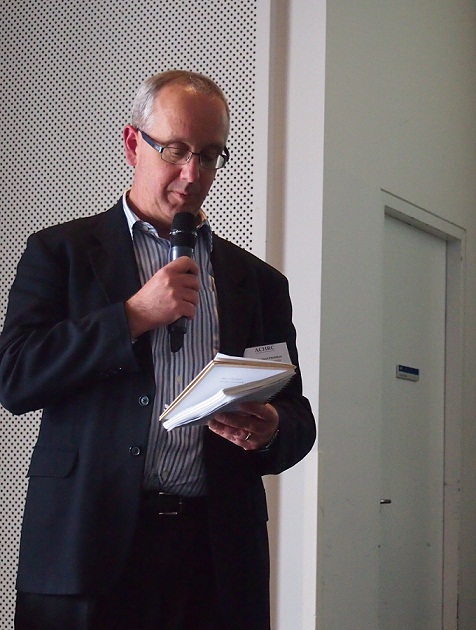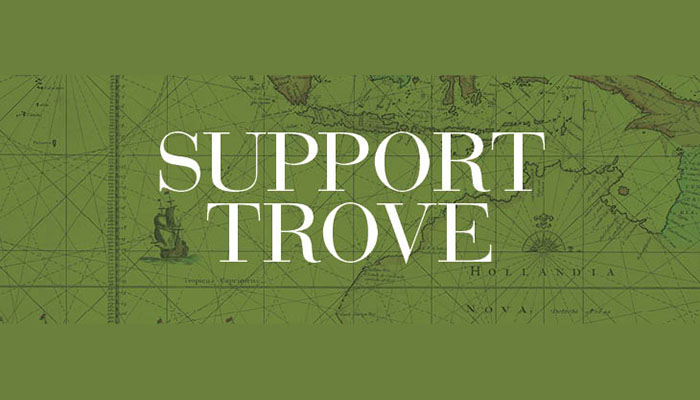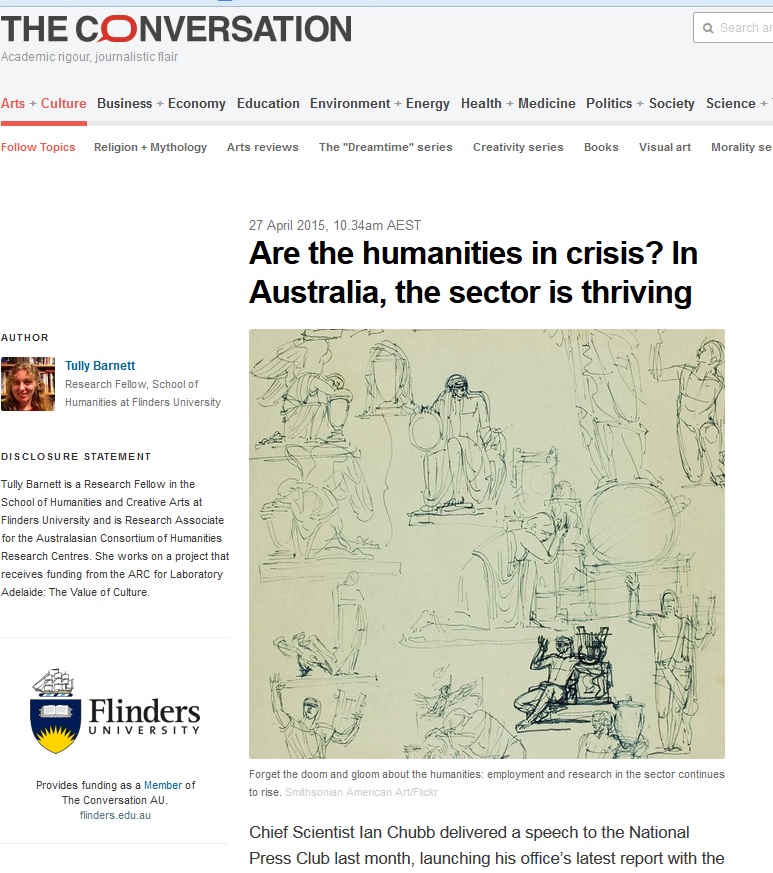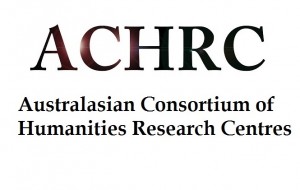The Australasian Consortium of Humanities Research Centres (ACHRC) is a network for groups engaged in Humanities-based research. Our aim is to connect Humanities researchers and centres, both within the Australasian region and internationally, and to promote relationships with cultural institutions and sector representative bodies in the wider community. We provide a virtual and physical hub or information about research and research strategy in the Humanities.
Humanities in the Regions 2020
The Two Cultures: The Arts and The Sciences in Dangerous Times
Live Symposium: 9am – 1:30pm, July 3rd 2020 (over Zoom)

(Image: Rick Amor (Australian, 1948-), People Watching the Sea, 1995, oil on canvas.)
Hosted by Associate Professor Victoria Kuttainen and The Cairns Institute, James Cook University, with Professor William Christie and Katie Cox, ACHRC.
For Humanities in the Regions 2020, scholars are invited to address the question of the ‘two cultures’; to explore the similarities and differences between the sciences and humanities, especially as they pertain to regional universities, and to tell us how the two sets of disciplines might relate better to each other, what they could learn from each other, and how they might be reconciled in a more balanced model of education. How can the arts and humanities collaborate with the sciences to address these wicked problems, and what could (or should) the regional humanities look like in the future?
The program for the live symposium, to be held over Zoom on July 3rd, includes keynote addresses by Dr. Paul Hardisty (CEO of AIMS) and Dr. Margaret Cook (University of the Sunshine Coast) and two featured panels; ‘Regional Humanities after COVID-19’ and ‘Conversations Across the Creek’. We hope you will join us for lively discussions of the strategic choices facing the sector in the coming years and the potential for researchers to bridge the cultural (and sometimes physical) divisions between humanities, arts and sciences.
For more information, please see the conference page and program, or contact Katie Cox at info@achrc.net.
Registration is free.
2019 Annual Meeting
The Humanities and Well Being

2-3 December 2019
National Library of New Zealand/Te Puna Mātauranga o Aotearoa, Wellington, New Zealand
Hosted by: Associate Professor Kerry Taylor, Massey University’s WH Oliver Research Academy and Associate Professor Angela Wanhalla, University of Otago’s Centre for Research on Colonialism
Registration is now open!
The 2019 ACHRC Annual meeting returns to New Zealand, this time heading to Wellington, for two days of discussion about the practicalities of Humanities, Creative Arts and Social Sciences research in a world on fire. To acknowledge this and the role we as humanities researchers can play in responding to current conditions, we meet with the theme of The Humanities and Well Being. Panels and speakers will address questions such as how has the academic life changed over the last decades, what is the connection between the value of the humanities and the public good, what does a “wellbeing budget” as released by the New Zealand government in 2019 do for the place of arts, culture and humanities in the world?
For more information visit the 2019 Annual Meeting page, the organiser’s conference website, or contact Tully Barnett
2019 ACHRC Humanities in the Regions Event: “Renewal” at the University of Newcastle 30 & 31 May
(image: The Coal River or Port of Newcastle New South Wales, attributed to John William Lewin 1808)
In late May 2019, the School of Humanities and Social Science and the Centre for 21st Century Humanities will be hosting the Australasian Consortium of Humanities Research Centres’ Humanities in the Regions symposium with the theme of “Renewal”.
Held each year in a regional centre, the gathering provides an opportunity to share knowledge around the practicalities of conducting humanities research from a regional location. Planned sessions featuring local and national experts will focus on grant writing for ARC and Categories 2 – 4 funding; establishing and maintaining research relationships with industry, in particular with GLAM; research collaborations between Humanities and Creative Arts; and using how teaching and research can be mutually supporting.
If you would like to be involved with organising or delivering a session, please email the local conveners: Assoc. Prof. Nancy Cushing or Dr Julie McIntyre or ACHRC representatives Rachel Franks and Tully Barnett.
Download the symposium program (PDF 577KB).
Registration is free.
ACHRC Humanities in the Regions 2019
The University of Newcastle Thursday 30 May & Friday 31st May 2019
with an optional cultural tour on Saturday 1 June
The Centre for 21st Century Humanities and the School of Humanities and Social Science will host the Australasian Consortium of Humanities Research Centres’ (ACHRC) Humanities in the Regions symposium on 30 – 31 May at New Space.
The theme of the symposium is ‘Renewal – Regional humanities research in the 21st Century’.
Held each year by the ACHRC, the gathering provides an opportunity for scholars from postgraduates to professors to share knowledge around the practicalities of conducting humanities research from a regional location. Registration is free. Download the symposium program (PDF 577KB).
Sessions feature local and national expertise in areas such as research evaluation and the planning, development, writing and working of nationally competitive grants as well as cultural sector fellowships and partnerships with the Galleries, Libraries, Archives and Museums (GLAM) sector and other cognate industries.
Symposium co-organiser and Centre for 21st Century Humanities member Dr Julie McIntyre said the theme of Renewal is symbolised by the change New Space has brought to Newcastle’s streetscape, social milieu and even to visual perceptions of the city and its riverine and coastal landscape from the building’s upper floors.
“Humanities research globally has undergone seismic digital and cross-disciplinary change in the 21st century. There have been transformations in how we see the role of our inquiries in the humanities, and how we ask and answer questions.”
“Regional university researchers in disciplines such as History, English & Writing, Creative Arts & Industries, Anthropology, Linguistics and Languages generate and participate in nationally and globally significant studies from our bases in different ‘local’ worlds than our colleagues in metropolitan universities. This symposium is an opportunity to strengthen regional contributions to new knowledge by sharing know-how about shaping and making research”, Dr McIntyre said.
“The symposium’s keynote presentations are themed around how we as researchers are changing the humanities in a changing world. Day One speaker is Professor Ros Smith, University of Newcastle Acting Pro-Vice Chancellor for Research & Innovation and member of the Centre for 21stCentury Humanities.”
“The Day Two keynote address will be given by Associate Professor Anna Johnston from the University of Queensland and the Australasian Consortium of Humanities Research Centres. She will focus on Eliza Hamilton Dunlop who lived at Mulla Villa at Wollombi in the lower Hunter Valley for a time in the nineteenth century.
“Visiting places is often essential to humanities scholars. On Saturday 1 June, several delegates will take a field trip to Mulla Villa to continue discussion of the issues raised by Professors Smith and Johnson, and in other sessions”, Dr McIntyre said.
One such session is ‘Research Evaluation and Grant Experience’. This involves a panel of presenters. Australian Research Council (ARC) specialists will discuss Excellence in Research for Australia (ERA) processes and new Engagement and Impact (EI) measures. Emeritus Professor Hugh Craig will talk about funding of the TLCMap under the ARC’s Linkage Infrastructure, Equipment and Facilities (LIEF) scheme, and Dr Elizabeth Roberts-Pedersen will discuss her ARC Discovery Early Career Research Fellow Award.
For more information visit the Australasian Consortium of Humanities Research Centres website.
The 2019 ACHRC Annual Meeting will be held in Wellington 2-3 December
——————————————————————————————————————
2018 ACHRC Annual Meeting: Creative Humanities Matters
Artwork by Vendela Apro-Wellman
The Australasian Consortium of Humanities Research Centres 2018 Annual Meeting and Arts Research in the Creative Humanities Showcase
19-20 November 2018 University of the Sunshine Coast’s Sippy Downs campus
Creative Humanities Matters provides a lively forum for the presentation and discussion of issues, information and engaging research from the creative humanities sphere. The colloquium addresses complex questions concerning notions of value in the cultural sector, and highlights how creative humanities research and practices involving creativity, multi-disciplinarity and critical thinking can contribute to our capacity to negotiate a rapidly changing world. The event includes keynote addresses from leading experts, panel discussions, workshops, book launches and a dramatic performance. Creative Humanities Matters showcases a range of initiatives including collaborations with collecting institutions, interdisciplinary and creative industry-focused projects, and creative outputs that respond to complex social and cultural issues.
For more information and to register see the colloquium website at the USC
30 October 2018
The Advisory Board of the Australasian Consortium of Humanities Research Centres (ACHRC) has today written to the Minister for Education to express its shock and disappointment over the culling by the then Minister for Education and Training, Mr Simon Birmingham, of eleven successful Australian Research Council (ARC) humanities grants in the award round of the last year. For a Minister who could claim no expertise in the relevant topics and disciplines to override a process of rigorous peer review and deny the opportunity to scholars whose projects had been deemed meritorious by their colleagues shows a lack of respect for due process and for the academic community at large. This is the exercise of arbitrary power and offensive to the principles of liberal democracy on which the parliamentary, as well as university, system is based. Besides occasioning pain and career retardation for the scholars whose work has been singled out, the Minister’s interference, as the President of the Academy of the Humanities writes, “damages Australia’s reputation on the world stage”. As an Australasian organisation, the ACHRC is already conscious of the negative impression the episode has left on Australia’s collaborators across the Tasman.
The research that has been conducted as a result of ARC funding by humanities scholars has made a vital contribution to the nation and beyond. Australian innovation and international competitiveness, however, depend upon transparent funding mechanisms that recognise and reward excellence in the work of all researchers, from early career to senior scholars. To meddle in this way risks more than just damaging our reputation, it risks downgrading and impoverishing the actual work we do.
We ask the Government, therefore, to reconsider the dangerous precedent this sets in respect of good governance and restore funding for those projects which the former Minister rejected.
— The Advisory Board of the Australasian Consortium of Humanities Research Centres
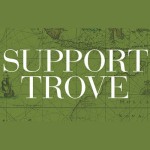
We support the National Library’s Trove project
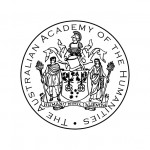
We thank The Australian Academy of the Humanities for their support of the ACHRC
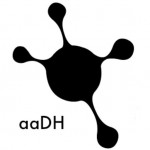
The ACHRC has a memorandum of understanding with the Australasian Association of Digital Humanities (aaDH) for mutual support
